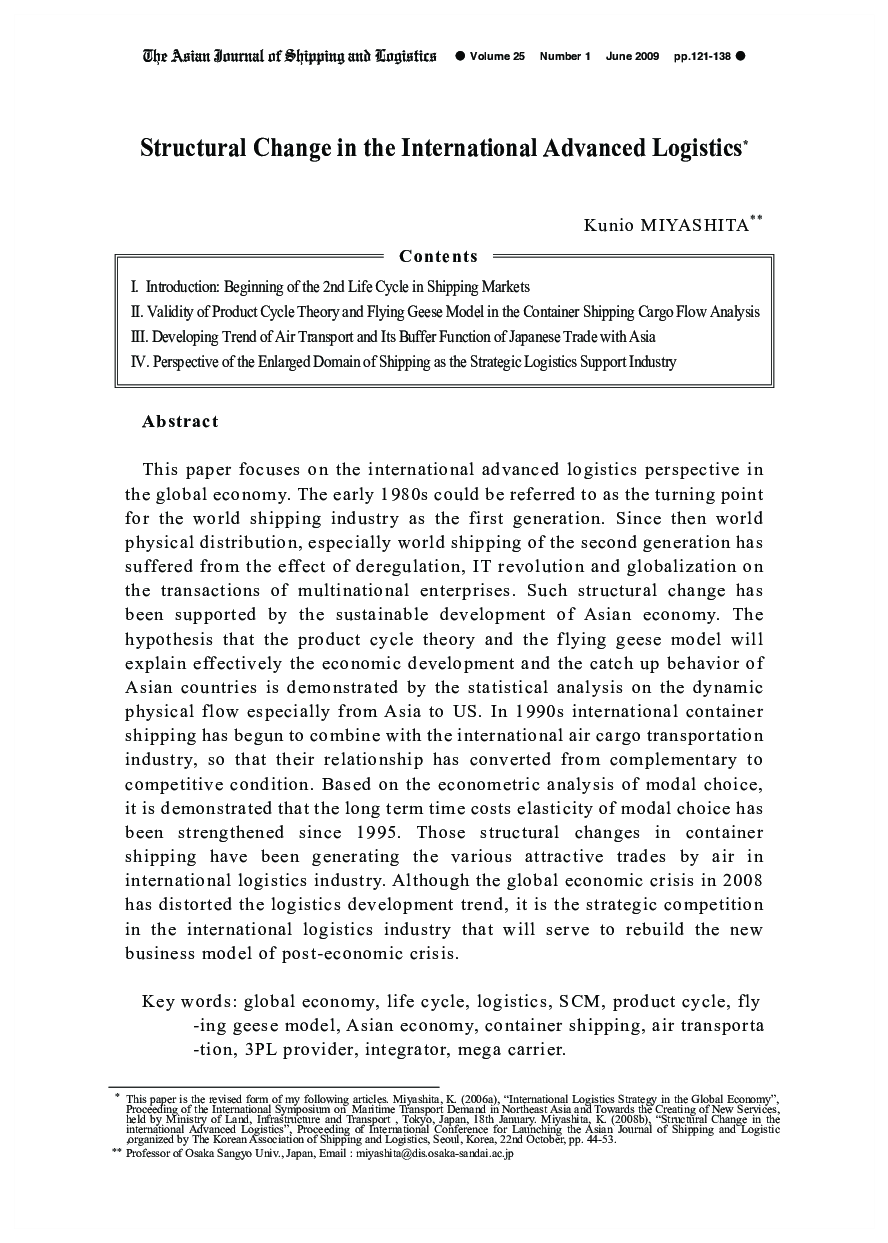| Article ID | Journal | Published Year | Pages | File Type |
|---|---|---|---|---|
| 994282 | The Asian Journal of Shipping and Logistics | 2009 | 18 Pages |
This paper focuses on the international advanced logistics perspective in the global economy. The early 1980s could be referred to as the turning point for the world shipping industry as the first generation. Since then world physical distribution, especially world shipping of the second generation has suffered from the effect of deregulation, IT revolution and globalization on the transactions of multinational enterprises. Such structural change has been supported by the sustainable development of Asian economy. The hypothesis that the product cycle theory and the flying geese model will explain effectively the economic development and the catch up behavior of Asian countries is demonstrated by the statistical analysis on the dynamic physical flow especially from Asia to US. In 1990s international container shipping has begun to combine with the international air cargo transportation industry, so that their relationship has converted from complementary to competitive condition. Based on the econometric analysis of modal choice, it is demonstrated that the long term time costs elasticity of modal choice has been strengthened since 1995. Those structural changes in container shipping have been generating the various attractive trades by air in international logistics industry. Although the global economic crisis in 2008 has distorted the logistics development trend, it is the strategic competition in the international logistics industry that will serve to rebuild the new business model of post-economic crisis.
